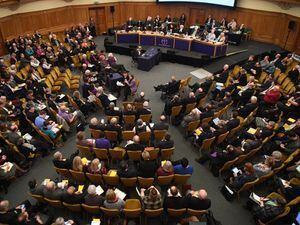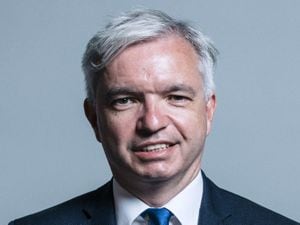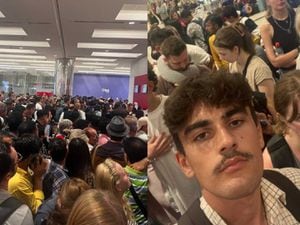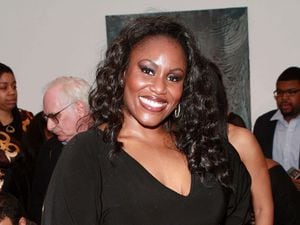Need for culture change over church abuse complaints, General Synod told
Reverend Peter Hancock, Bishop of Bath and Wells, lead bishop for safeguarding, told the Synod “this will not be an easy couple of years”.

There is a need for a culture change within the Church of England, with some clergy believing that abuse complainants are “simply out for the money”, the General Synod has heard.
Sir Roger Singleton, member of the national safeguarding team, said the church has done “some useful work” in recent years, but added that “an enormous amount” still needs to be done.
He told the Synod there is a “common theme” running through recent reviews and inquiries, and said: “That is a continuing need for culture change within the church.”
Sir Roger was speaking at a session about safeguarding, where there was a presentation on national developments and on the Church’s preparation for the Independent Inquiry into Child Sexual Abuse.
He said: “I am heartened by the positive affirmation which our archbishops, diocesan bishops and deans continue to give to the importance of creating and sustaining a safe church.
“But we need to extend the concept of leadership further if we are to protect children and vulnerable adults adequately.
“It’s the actions of people in parishes and the commitment of parish clergy and parish senior laity which are also critical.”And experience of this, while improving, is still variable.
“I believe a tipping point has been reached where most clergy are informed, supportive of their parish (safeguarding) representatives … and willing to tackle reluctant church wardens or PCCs.
“But ambivalence, even hostility, continues with a minority who appear unable or unwilling to accept the need for sensible, proportionate measures; or who minimise the impacts which physical, sexual, emotional or spiritual abuse can have on people’s lives; or who believe that complainants are simply out for the money.”
Sir Roger said he is “fundamentally optimistic” that the Church recognises the need for culture change and wishes it to happen.
Reverend Peter Hancock, Bishop of Bath and Wells, lead bishop for safeguarding, told the Synod “this will not be an easy couple of years”.
Referring to the inquiry, he said: “We will hear deeply painful accounts of abuse, of poor response, and of ‘cover-up’.
“We will, as our friends in the Anglican Church in Australia did, feel a deep sense of shame.”
In 2016, the Church of England was dealing with around 3,300 safeguarding concerns – involving all forms of abuse, not just sexual abuse – some of which were non-current.
Gilo, one of a group of abuse survivors who held a silent protest outside the Synod meeting, told the BBC that the Church was “failing” to set a good example to other institutions in its handling of complaints.
He said: “I think there are some dioceses which have quite a good record and others which have a very poor record.
“But one of the very sad things is that the structure behind me in Church House really has not been very good in its treatment of survivors.”
He said the national safeguarding team was “coming under very considerable fire” and that many survivors believed it needed “total root and branch reform”.
“It needs new training, new management and very much a new vision of itself and its purpose,” he said.
“But more than anything that needs to happen from today is an overarching, independent ombudsbody to supervise and monitor the safeguarding of the church so it’s functional and operating cleanly.”





